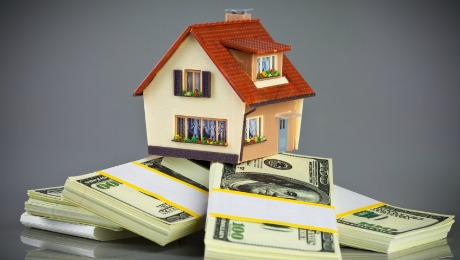What Is An Earnest Money Deposit?

The earnest money deposit is essentially used to show the home seller that you are serious about your offer and you are presenting a deposit (i.e. 1% or 2% of the purchase price) as evidence that you are ready to be financially committed to the deal. Your earnest money deposit can typically be put toward your down payment or closing costs, as long as the seller accepts your offer.
Who Receives the Deposit?
Your earnest money deposit is usually given to the title company, although this can vary between states. In some states, real estate brokers hold on to the deposit. You should never give your earnest money deposit to the seller. Should something go wrong, getting that money back could be very complicated.
Once you have given your deposit to the appropriate party, the funds are held in an escrow account until the sale of the home reaches the final stages of the transaction. At that point, the funds are freed up to be put toward your closing costs and/or down payment.
How Do I Get the Deposit Back?
If, for some reason, the deal falls through, there’s a chance for a small cancellation fee to be taken out of the deposit (ask your real estate professional and/or attorney for details). The remaining amount is then held in escrow until the holder of the deposit determines whether or not you are entitled to receive the money back. Whether or not the buyer can receive a refund depends on the terms of the purchase agreement. Before you officially submit an offer to purchase, make sure the purchase agreement contract explains how an earnest money deposit refund is handled. In many cases, you can get your earnest money deposit back if you discover problems with the property or if you are declined for a mortgage.
Is an Earnest Money Deposit Mandatory?
It is not necessarily unheard of for buyers to submit offers without an earnest money deposit; however, most sellers may wish not consider these offers. Making a reasonable earnest money deposit shows the seller that you are serious about making a deal. Making a sizeable deposit shows them you’re more than just serious – you’re ready to outshine the competition and are extremely motivated to buy. Presenting a bigger earnest money deposit can greatly increase your offer’s chances of being accepted over others.
What If I Don’t Have to Make a Down Payment? Where Does the Money Go?
If you are purchasing the home using a VA loan or USDA loan (both of which offer the perk of up to 100% financing), you will most likely get your money back and will be able to use it however you want.
Can I Lose My Earnest Money Deposit?
Buyers can lose their earnest money deposit if they bail on the real estate deal. Earnest money acts as a symbol of assurance that you aren’t going to back out on the purchase contract without a good reason. Acceptable reasons for backing out on the deal may include…
- The home did not pass inspection.
- Buyer can’t qualify for financing.
- There are legitimate problems with the property.
If you simply change your mind, and decide not to go through with the transaction, the deposit could be forfieted to the seller.
If you have additional questions or concerns about making an earnest money deposit, don’t hesitate to discuss them with your real estate agent or contact an eLEND mortgage expert today by calling 800-634-8616.
Subscribe To Our Newsletter
Sign up with your email address to receive news and updates.